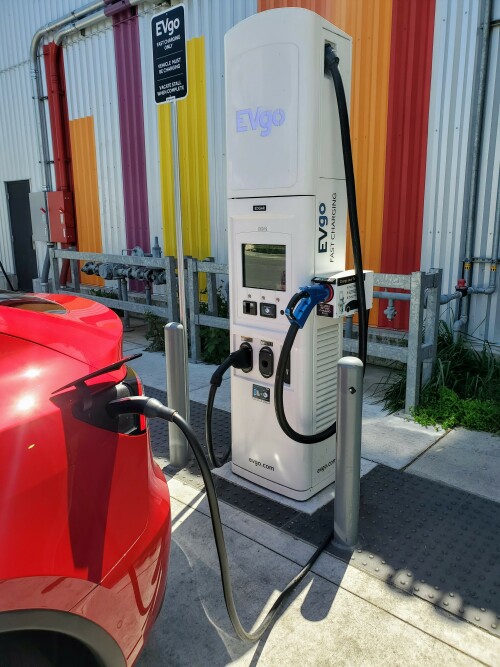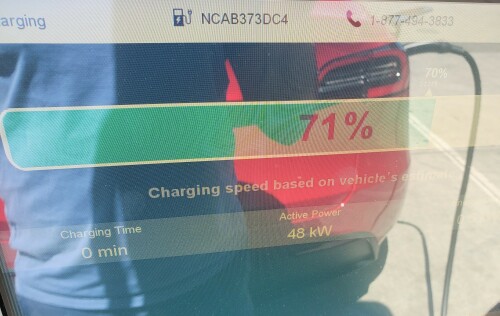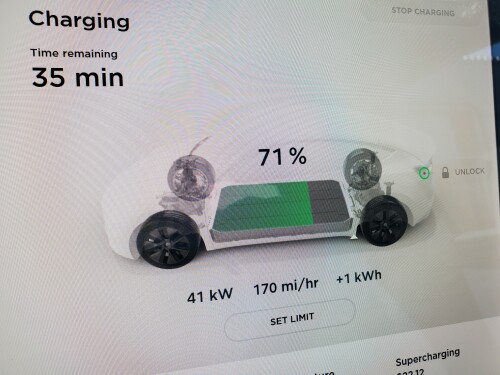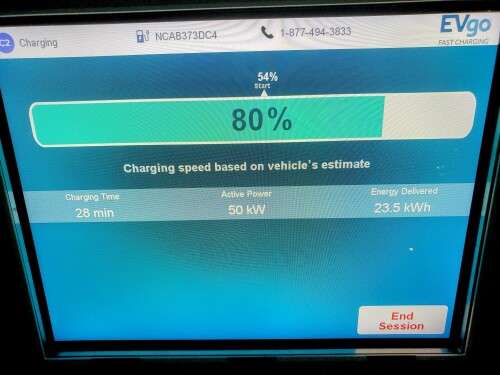EVgo has been a leader in DCFC infrastructure for non-Tesla vehicles. However, they have not made a significant move into the HPC space during the whole buildout of the Electrify America network that is pretty much dedicated to HPCs. That is now starting to change. They have had "prototype" stations for testing HPCs in Fremont, CA and Baker, CA. I have finally spotted a normal site with HPCs installed.
Plugshare - Carlmont Villiage Shopping Center, Belmont, CA
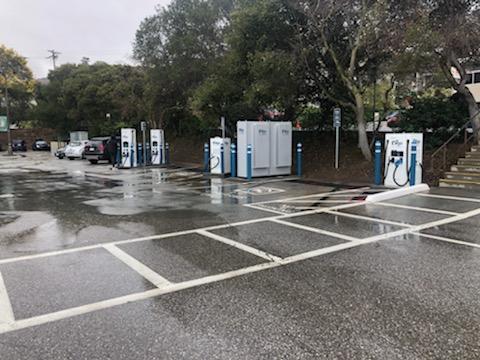
The site has two Delta chargers that support 100kW on CCS and CHAdeMO and two Signet chargers that support 350kW on CCS and 100kW on CHAdeMO. Before this site came online, the highest power units I had seen were the BTC slim units that were either labeled 80kW or 100kW. A few notable sites had 4 to 6 of these units installed.

The price shown above is with the AAA NorCal promotion for membership rates without a monthly commitment.
Plugshare - Carlmont Villiage Shopping Center, Belmont, CA

The site has two Delta chargers that support 100kW on CCS and CHAdeMO and two Signet chargers that support 350kW on CCS and 100kW on CHAdeMO. Before this site came online, the highest power units I had seen were the BTC slim units that were either labeled 80kW or 100kW. A few notable sites had 4 to 6 of these units installed.
The price shown above is with the AAA NorCal promotion for membership rates without a monthly commitment.
Last edited:






